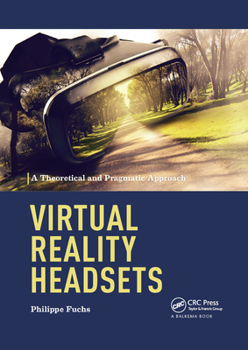Virtual Reality Headsets - A Theoretical and Pragmatic Approach
Select Format
Select Condition 
Book Overview
The purpose of virtual reality is to make possible a sensorimotor and cognitive activity for a user in a digitally created artificial world. Recent advances in computer technology have led to a new generation of VR devices such as VR headsets. Accordingly, virtual reality poses many new scientific challenges for researchers and professionals.
The aim of this book, a manual meant for both designers and users of virtual reality, is to present the current state of knowledge on the use of VR headsets in the most complete way possible. The book is divided into 13 chapters. The objective of the first chapter is to give an introduction to VR and clarify its scope. The next chapter presents a theoretical approach to virtual reality through our Immersion and Interaction methodology also known as "3I model''. Then, a chapter about human senses is necessary to understand the sensorimotor immersion, especially vision. These chapters are followed by several chapters which present the different visual interfaces and the VR headsets currently available on the market. These devices can impart comfort and health problems due to sensorimotor discrepancies. A chapter is devoted to these problems, followed by a chapter that gives a detailed discussion of methods and 32 solutions to dispel, or at least to decrease, VR sickness. The following three chapters present different VR applications that use VR headsets (behavioural sciences, industrial uses and Digital Art) and the final chapter provides conclusions and discusses future VR challenges.





